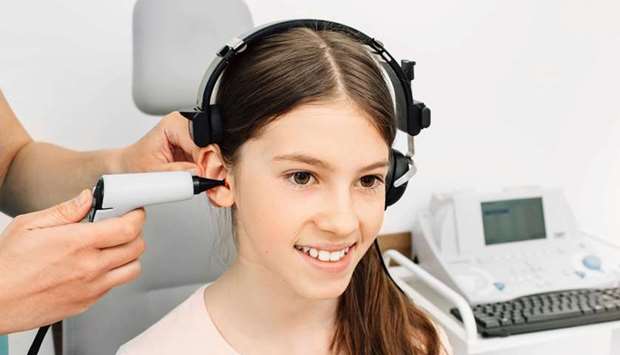From crashing waves in a savage sea to family chatter and laughter. The words, tones, and inflation in our lives create complete experiences and make endless memories. Sounds connect us to our loved ones and the environment around us. Now, imagine all these sounds sunken by silence and stillness. It is our responsibility to make hearing part of our overall health and well-being.

Ears are delicate and sensitive organs that are responsible for hearing and maintaining balance. Audiologists are uniquely qualified professionals who provide comprehensive services related to audiologic assessment and the prevention of hearing loss, treatment and rehabilitation of persons with impairment of auditory and vestibular function. Most audiologists work in healthcare facilities, alongside general physicians and ENT doctors, audiology clinics, school districts and research facilities.

Hearing deficiency is an invisible and growing epidemic. People with hearing deficiency or hearing loss are unable to hear as well as those with normal hearing. This happens when there is a problem with one or more parts of the ear, the nerves coming from the ears or the area of the brain that controls hearing. Hearing deficiency can be a result of several factors, such as aging, hereditary, ear infections, excessive earwax, ototoxic medications, exposure to excessive noise and medical conditions such as diabetes or cancer. Some of these factors can be dealt with by a visit to your doctor or ENT specialist.

The burden of hearing difficulties is on the rise. A subtle loss of hearing could disrupt how the brain operates as it tries to figure out what it missed. A year of Covid has certainly taught us how much we need human connection. But, if you are only catching every third word of what’s being said, missing out on the jokes, instructions or conversations, how connected are you really? There are only so many times you can ask someone to repeat something and soon you may find yourself avoiding social situations. Untreated hearing difficulties could lead to isolation, anxiety and depression. Asking for repetition often, frequently thinking people are mumbling, turning the volume of the TV or radio up, having difficulty hearing on the phone, failing to hear someone talking behind you, trouble following conversation in noisy environments are some of the tell-tell signs of hearing difficulties. If you suspect you might have some difficulty hearing, it is important to get your hearing checked by an audiologist. Here at Alfardan Medical with Northwestern Medicine, we have an exceptional ENT department to address all your hearing and dizziness concerns.
Hearing difficulty is not a stand-alone issue. It is linked to everything we do every single day. We should be thinking about what is gained and not lost by hearing well – social interaction, family connection, work productivity and living life to the fullest. Sounds narrate life’s greatest moments. Let us all make hearing health part of our conversation.
-Advertorial

